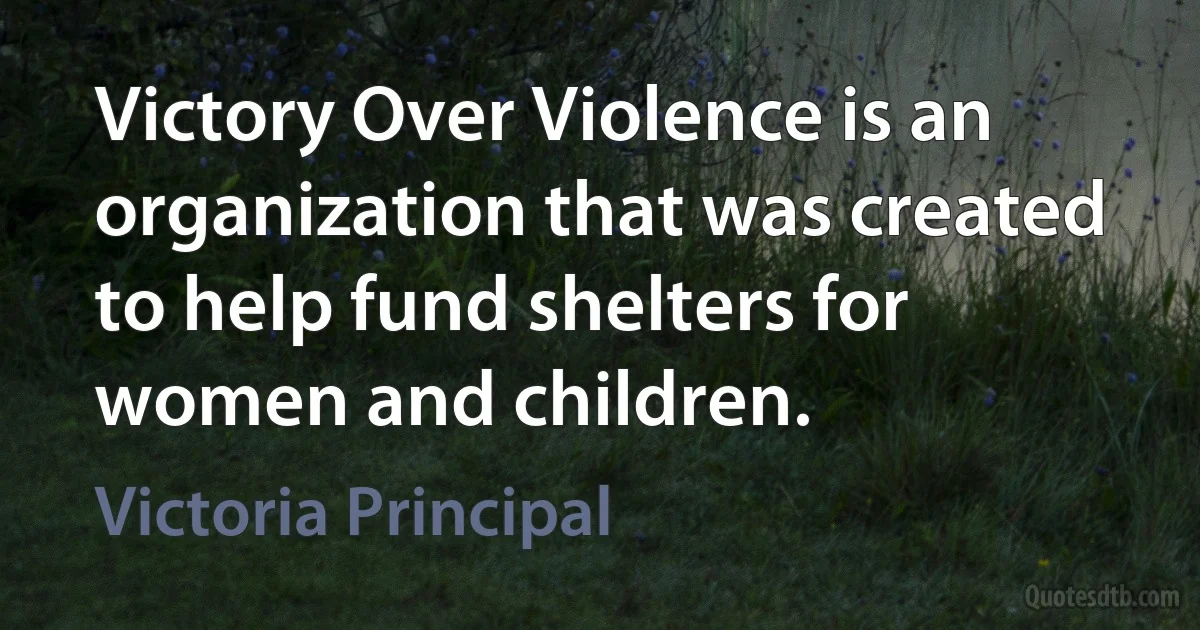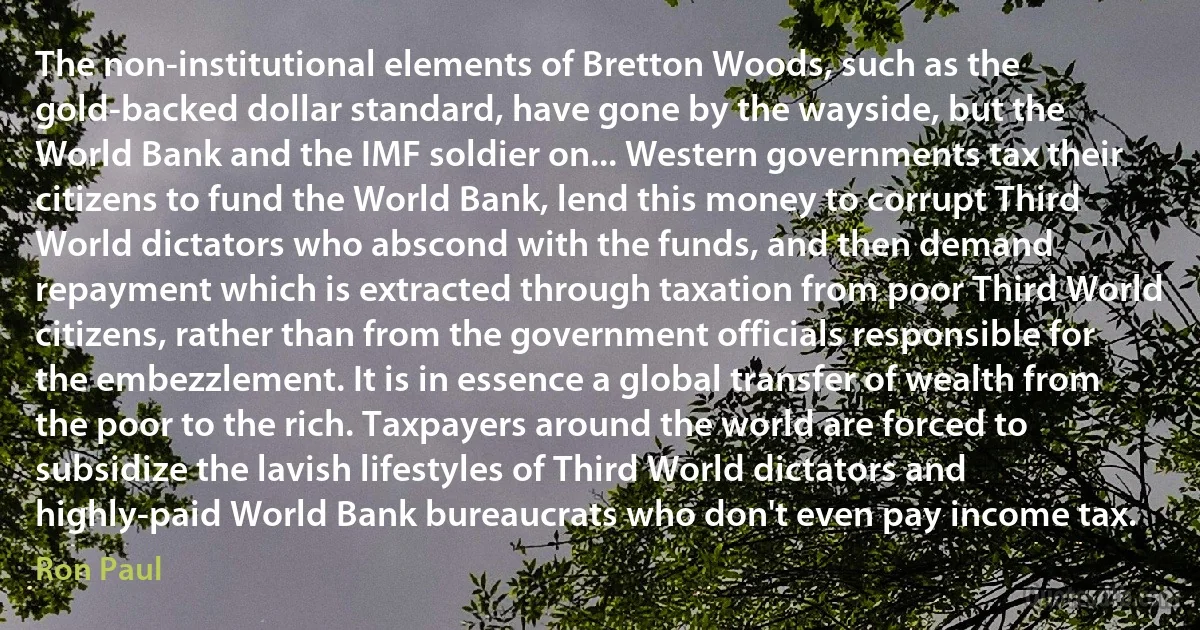Fund Quotes - page 3
Not only was he ignorant, but he had not even those conditions within himself which made knowledge possible. All that there was developed of him, at present, was a fund of energy, self-esteem, hope, courage, and daring, the love of action, life, and adventure; his life was in the outward and present, not in the inward and reflective; he was a true ten-year old boy, in its healthiest and most animal perfection. What she was, the small pearl with the golden hair, with her frail and high-strung organization, her sensitive nerves, her half-spiritual fibres, her ponderings, and marvels, and dreams, her power of love, and yearning for self-devotion, our readers may, perhaps, have seen. But if ever two children, or two grown people, thus organized, are thrown into intimate relations, it follows, from the very laws of their being, that one must hurt the other, simply by being itself; one must always hunger for what the other has not to give.

Harriet Beecher Stowe
You know, these things interested me before I became a businessman and I kind of neglected them during twenty, twenty-five years, while I was engaged in making money, because running a hedge fund takes, you know, a hundred percent of your attention on Saturday morning, and so I didn't get involved in these issues very much. It's only when I was rather successful at it and I've made enough money for my personal needs and to look after my family that we established this interest and, by now, it is more important to me than my business.

George Soros
As is often the case with major disputes in economics, the argument over fiscal policy went on for years, with some critics of fiscal policy still defending their position when this book went to press. It seems fair, however, to say that among economists a more or less Keynesian view of the effects of fiscal policy came to prevail. Careful statistical studies at the International Monetary Fund and else where showed that austerity policies have historically been followed by contraction, not expansion. Recent experience, in which countries like Spain and Greece that were forced into severe austerity also experienced severe slumps, seemed to confirm that observation. Furthermore, it was clear that those who had predicted a sharp rise in U. S. interest rates due to budget deficits, leading to conventional crowding out, had been wrong: U. S. long-term interest rates remained near record lows even during the years from 2009 to 2012, when the government ran very large deficits.

Paul Krugman
Burns's Brother Gilbert, a man of much sense and worth, has told me that Robert, in his young days, in spite of their hardship, was usually the gayest of speech; a fellow of infinite frolic, laughter, sense and heart; far pleasanter to hear there, stript cutting peats in the bog, or such like, than he ever afterwards knew him. I can well believe it. This basis of mirth, a primal element of sunshine and joyfulness, coupled with his other deep and earnest qualities, is one of the most attractive characteristics of Burns. A large fund of Hope dwells in him; spite of his tragical history, he is not a mourning man. He shakes his sorrows gallantly aside; bounds forth victorious over them.

Thomas Carlyle
(On 1941.7.2 Dimitrov handed Molotov a proposal, suggesting a help fund of 2 millions US Dollars be given to Chinese Communist Party. After discussion, the Soviet Communist Party had approved the sum of One million US Dollars.) Dimitrov then wrote to Molotov:"It is very important to let Chinese comrades to have at least half of the sum as soon as possible, we believe it is necessary to deliver the fund using illegal methods by planes through Mongolia.

Georgi Dimitrov
It's relevant that people whose polling places are schools are more likely to vote for sales taxes that will fund education. Or that judges become more likely to deny parole the longer they go without a break. Or that people serve themselves more food when using a large plate. Such effects, even when they're small, can make a practical difference, especially when they influence votes and justice and health. But their existence doesn't undermine the idea of a rational and deliberative self. To think otherwise would be like concluding that because salt adds flavor to food, nothing else does.

Paul Bloom
Well, last I checked, there was no 'if' in the 15th Amendment. One person one vote isn't just a slogan - it's the highest law of this land. As president, I will not rest until every single American can cast their vote, and every single one of those votes is counted. We shouldn't have to wait for another Florida to fully fund election reform.

Wesley Clark
To learn by example is to submit to authority. ...By watching the master and emulating his efforts in the presence of his example, the apprentice unconsciously picks up the rules of the art, including those which are not explicitly known to the master himself. These hidden rules can be assimilated only by a person who surrenders himself to that extent uncritically to the imitation of another. A society which wants to preserve a fund of personal knowledge must submit to tradition. ...Common Law ...is the most important system of strictly traditional activities.

Michael Polanyi
But you don't have a chance if you can't find a job. I don't think it penetrates the minds of this Administration what it must be like for a factory worker to arrive home to his family with the news that he's been laid off. What it must be like not to know what the future holds for your children, because you don't know what the future holds for you. What it must be like to see the government take hundreds of billions of dollars that could be used to fund job training, unemployment benefits, or jobs programs - and instead to send that money off to people who have such staggering wealth that the new money won't make the tiniest improvement in their lifestyle. What it must be like to be told that tax cuts for the rich are necessary to create jobs for working people, and then to see jobs fall month after month for more than 30 months. If that doesn't break your heart, you don't have a heart.

Wesley Clark
As to us here our thoughts of every thing at home are suspended, by our astonishment at the wonderful Spectacle which is exhibited in a Neighbouring and rival Country-what Spectators, and what actors! England gazing with astonishment at a French struggle for Liberty and not knowing whether to blame or to applaud! The thing indeed, though I thought I saw something like it in progress for several years, has still something in it paradoxical and Mysterious. The spirit it is impossible not to admire; but the old Parisian ferocity has broken out in a shocking manner. It is true, that this may be no more than a sudden explosion... But if it should be character rather than accident, then that people are not fit for Liberty, and must have a Strong hand like that of their former masters to coerce them. Men must have a certain fund of natural moderation to qualifye them for Freedom, else it becomes noxious to themselves and a perfect Nuisance to every body else.

Edmund Burke
Multilateral organizations have made bold commitments of their own to fight disease. The G-8 has pledged to match America's efforts on malaria and HIV/AIDS. Through the Global Fund, many countries are working to fight HIV/AIDS, malaria, and T-B. Lives in the developing world depend on these programs, and all who have made pledges to fight disease have an obligation to follow through on their commitments.

George W. Bush
Nations in this chambers have supported the efforts of dissidents and reformers and civil society advocates in newly free societies throughout the new United Nations Democracy Fund. And we appreciate those efforts. And as young democracies around the world continue to make brave stands for liberty, multilateral organizations like the United Nations must continue to stand with them.

George W. Bush
I have been an active member of Mandela's ANC since the end of the 60's or the beginning of the 70's. Hassan II, the King of Morocco, talked me into helping fund the ANC. [...] I remember that at the time, the South African President, who must have been Vorster, was putting a lot of pressure on our ministers, so that they come to South Africa. A number of French ministers accepted these invites. I too was frequently asked to go... The leaders of South Africa wanted to make us believe that the apartheid was normal, or did not exist. I declared officially and most clearly, urbi et orbi, that I wouldn't set a foot there as long as the apartheid would exist.

Jacques Chirac


![[I]n this book... the rallies... are different... they build from day to day... and... it's led by people who are full-time... and they open offices in Washington. ...Three enlightened billionaires come to town and they say... "Hey, let's fund this"... and a brain trust. (Ralph Nader)](https://cdn.quotesdtb.com/img/quotes_images_webp/61/ralph-nader-book-brain-482861.webp)
